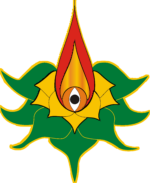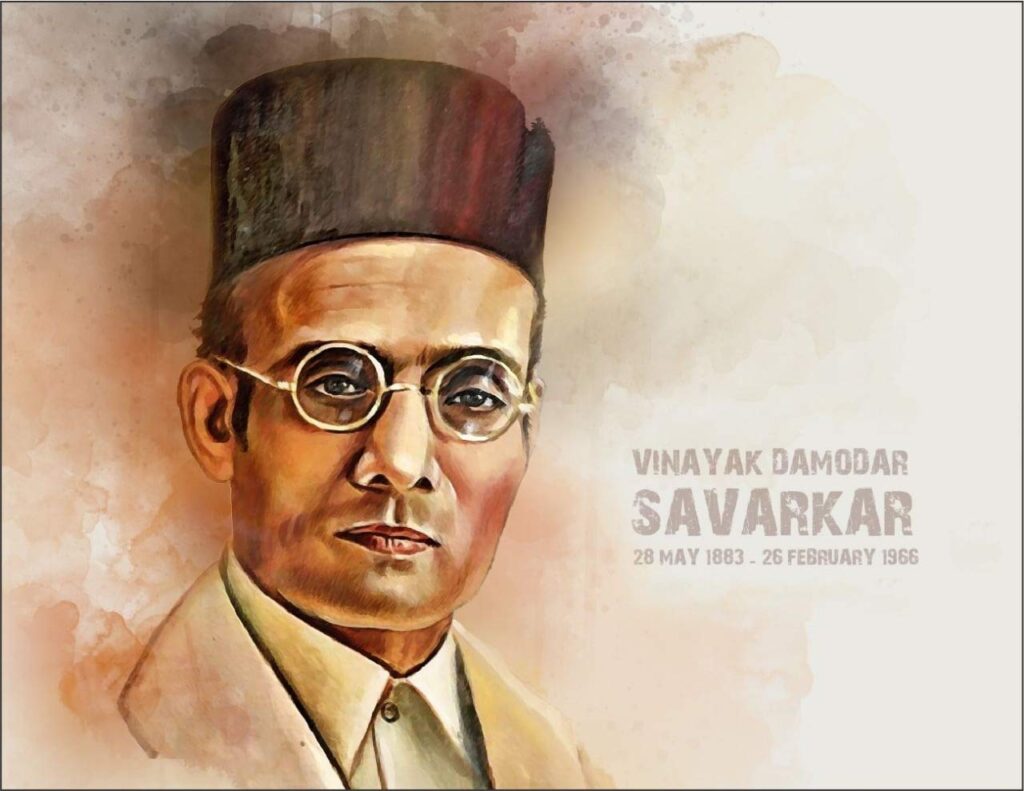Mahatma Gandhi had asked for the release of Swarantryaveer Savarkar and Babarao Savarkar in the issue of 'Young India' dated 26 May 1920. (Reference: The Collected Works of Mahatma Gandhi, Volume 20, Electronic Book Publishing Division, Government of India, New Delhi, 1999, pages 368 to 371).
Similarly, the 38th annual session of the Congress held at Kakinada in 1923 passed a resolution demanding the release of Savarkar. That resolution has just been found. The original resolution said:
“This Congress condemns the continued incarceration of Vinayak Damodar Savarkar and expresses its sympathy with Dr N. D. Savarkar and other members of his family.” (page h)
The President of the session said while passing the resolution:
“Mr Savarkar, as you know, received a life sentence from this Bureaucracy. His brother also received, I believe, the same sentence. And, I may add, as a prisoner myself, I occupied the room in the Bijapur jail where the brother of Sh. Vinayak (i.e Swarantryaveer) Damodar Savarkar, Sh. Ganesh (i.e. Babarao) Savarkar was living. Mr. Ganesh Savarakar has been released. But Mr Vinaynk Damodar Savarkar has not been released and this is the reason why we are making an exception in condemning the action of the Government with regard to one single prisoner. The reason is that this poor man is being most vindictively kept in jail. When he is entitled to be released……Friends, the time is past when we will have to protest against these things. But bypassing this resolution, we only show to the whole world how the Government is dealing in this matter in a most vindictive and mean spirit. I hope you all accept this resolution.” (page 185)
It is also important to note that this resolution was passed unanimously. In this same Congress session, Mrs Saraswati Bai too had sung an Urdu song in praise of Savarkar.
Who was the Congress President in this Kakinada session? An extremist or Tilakite or Hindutva-minded or right-winger?
No, not at all.
The President of this Kakinada Session of the Congress was a man who was present at the foundation of the Muslim League and later the President of the 1917-18 Kolkata session of the Muslim League (but absent in it due to being under house arrest) and of the famous Ali brothers of the Khilafat movement, younger brother Maulana Mohammad Ali.
The above words of praise for Savarkar of the then President of the Congress session are indeed of Maulana Mohammad Ali.
In this same Congress session, this same President paid tributes to the former Congress President (at the 1900 Lahore Congress session) Sir Narayan Chandavarkar. (Page 117)
This same Chandavarkar had pronounced punishment to Savarkar (as a judge). So, paying tributes to the man who gave the punishment, and demanding release of the person who was given punishment- both in the same session and that too by the President? This contradiction was shown by Kedarnath Shukla, but voices of 'Sit down, sit down' began to be heard at the session. (Page 186)
In this same session, Savarkar's colleague in London, V V S Aiyar had proposed a resolution demanding full independence (pages 128-130). But after the president took voting on it, this proposal was declared defeated. (Page 138) Reference: Report of the 38th Indian National Congress held at Cocanada on the 28th to 31 Dec 1923 and 1st Jan 1924. Published by Bulusu Sambamurti, General Secretary, Reception Committee, 1924
This extract is from Akshay Jog's Marathi book, 'Veer Savarkar – Akshep ani Vastava' (Meaning 'Veer Savarkar – Fake Allegations vs Reality)
To start with I have translated just this small portion, but I intend to have the whole book available in both Hindi and English.
In the following paragraphs I am adding my comments on this subject:
The former Congress President(at the 1900 Lahore Congress session), Sir Narayan Chandavarkar convicted Swatantryaveer Savarkar and pronounced the punishment to him, as a judge. Such a man who did such a pro-British act, sentencing nationalist freedom fighters was the Congress President earlier. No wonder this party is anti-Savarkar and will try its best to slander Savarkar, and hide the record of its leaders like Chandavarkar.
The Congress first demanded full Independence (Poorna Swarajya) for India in December 1929, a full 44 years after its foundation. Its demand in the 1920s, till the 1929 Lahore Session was only dominion status for India. And in its initial years, in the 1880s and 1890s, the Congress leaders openly stated the British Rule in India as the Providential Gift.
As late as 1911, the then Congress President Bishan Narayan Dar said that the British rule was 'still the greatest gift of Providence to my race'. ("Pt Bishan Narayan Dar's speeches and writings", edited by H.L.Chaterjee, Lucknow 1921, Presidential address 307 of 1911) Naturally, that is why this Party (Congress) is very eager to discredit people like Swatantyraveer Savarkar, who fought for 'Complete Political Independence for India' and announced this as their goal as early as 1900 (when he was only 17 years old) since its own record of those years is like this.
RSS founder Dr Hedgewar was forced to take recourse to other means of achieving freedom and since the Indian National Congress was the most powerful public movement, he joined it. Within the Congress he along with his friends formed Nagpur National Union. During the 1920 AICC session at Nagpur, he was in charge of the volunteer force. The Nagpur National Union submitted a resolution to the subjects committee which besides demanding the Congress to declare “complete independence as it sole objective” said: “It is the aim of the Congress to strive to establish democracy in India and to liberate all nations from the grip of capitalist countries”. Almost 10 years before the Congress first demanded Full Independence in December 1929, RSS founder Dr Hedgewar had urged the party to do so in 1920 itself.
The steering committee that deliberated on the resolution did not find it worthy of presenting to the AICC and eventually rejected the same. But the Modern Review of Calcutta in its March 21 issue commented on this resolution: “This resolution merited greater attention in the steering committee”.
On December 31, 1929, on the banks of Ravi River, the Congress at its historical Lahore session adopted a resolution demanding “Total Independence” and decided to observe January 26, 1930, as Independence Day. Dr Hedgewar had expected the same a decade ago from the Congress. He was naturally very happy and directed all the RSS shakhas to celebrate this day by hoisting the national flag and spreading the message of freedom.
The RSS extended uninhibited support to the 1929 Congress resolution. It issued a circular to all the 37 shakhas, which stated: "This year the Congress has passed a resolution declaring complete Independence as its goal. The CWC has called upon the entire nation to celebrate Sunday the 26th of January 1930 as Independence Day. We of the Sangh are naturally immensely happy that the All India Congress has endorsed our goal of complete Independence. It is our duty to cooperate with any organisation working for this objective. It is therefore suggested that all Swayamsevaks of each shakha meet at 6 p.m. on Sunday, January 26, 1930, at respective Sanghasthans. After offering salutation to the Bhagwa Dhwaj, the concept of Independence and the reason why this ideal alone should be kept before everyone should be explained. The function should conclude with an expression of congratulations to Congress for having accepted the ideal of complete Independence." [This fact is accepted by even the worst RSS critics e.g. Sumit Sarkar in his tract "Khaki shirt and Saffron Flag".]
What the Congress actually demanded in December 1929 was also urged by V V S Aiyar in the 1923 session, like Dr Hedgewar in 1920, but the Congress rejected it, as late as 1923! Its demand in the 1920s was only for dominion status.

